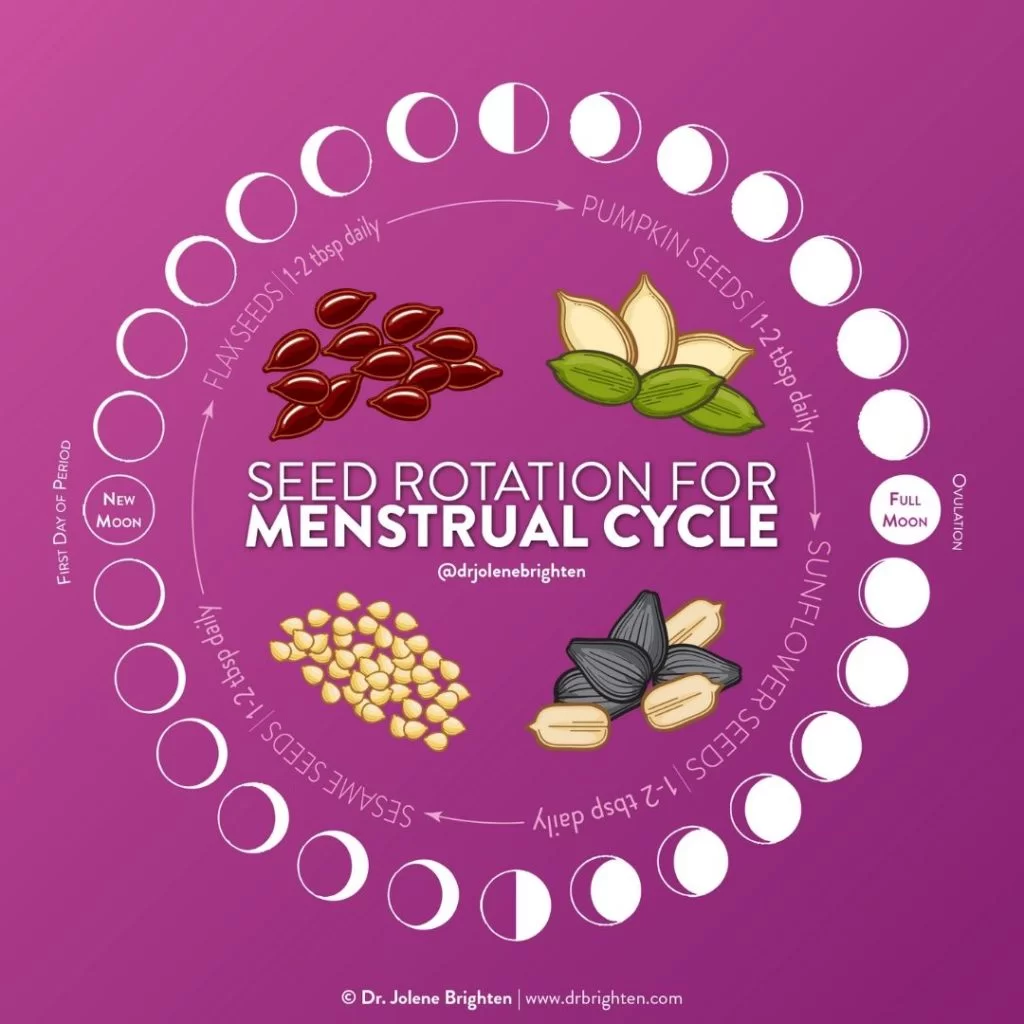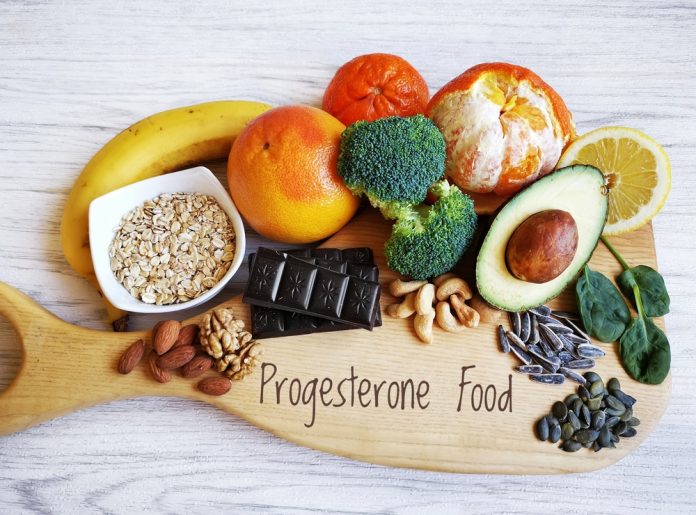Reproductive hormones are only one example of how our overall hormone levels can have far-reaching effects on our bodies. Pregnancy and menstruation that go smoothly both depend on adequate levels of progesterone. It may be more challenging to conceive and may cause painful symptoms when progesterone levels are insufficient. It aids in the uterine wall maintenance before, during, and after pregnancy. Decreased progesterone levels have been linked to a host of health problems and may occur naturally with age or as a result of specific medical diseases. This in-depth book delves into the science of the hormone progesterone and offers advice on how to increase progesterone naturally.
Table of Contents
Why is it essential to know how to increase progesterone naturally?

Progesterone has an important role in female sexuality. The glands produce adrenaline and the reproductive organs are responsible for its production. The regular occurrence of menstruation depends on it. It aids in getting the uterus ready for pregnancy and keeping the baby inside. Progesterone’s importance extends beyond just reproduction. It affects the heart, the brain, the thyroid, and the ability to sleep. Ovulation stimulates the body to produce the hormone progesterone. The corpus luteum is responsible for producing progesterone. It is a transient endocrine tissue found in the ovary of a female. The corpus luteum dissolves if fertilization does not take place. As a result, progesterone levels fall and menstruation begins.
The effects of progesterone on your body are extensive. Regulates menstruation by thickening the uterine lining and stopping uterine contractions. Fertility and thyroid health aren’t the only things progesterone assists with. To alleviate the symptoms of menopause, it is sometimes taken. Premature birth and menstrual dysfunction have been linked to elevated progesterone concentrations. Breast cancer, tumors, and infertility are all possible outcomes. The delicate hormonal balance that progesterone maintains is crucial to several aspects of health. Insufficient amounts of progesterone have been linked to numerous health issues. Let’s find out how to increase progesterone naturally
How to increase progesterone naturally?
1. Increase your nutritional intake

If your progesterone levels are low, getting pregnant may be more difficult. Some nutrients are essential for progesterone production in your body. Consuming more foods rich in these nutrients might be able to help your body produce more progesterone, depending on the specifics of the situation. It could aid in conceiving a child. Let’s look at how to increase progesterone naturally.
- Vitamin C
Vitamin C, which is easily soluble in water, has been shown to boost natural progesterone production. Vitamin C assists the body in various ways, including boosting the immune system, mending wounds, and keeping tissues and skin healthy. Researchers observed that postmenopausal women whose diets were rich in vitamin C also had higher levels of the hormone progesterone. Vitamin C’s ability to stimulate ovulation is just one way in which it contributes significantly to increased fertility. The female reproductive system benefits from ascorbic acid intake before ovulation. Ascorbic acid is reabsorbed more easily with the help of vitamin C because of vitamin C’s antioxidant properties. This implies that enough vitamin intake is necessary for optimal health. To increase your vitamin C levels, a supplement is unnecessary. Consume more vitamin C-rich foods. The highest concentrations of vitamin C can be found in foods including broccoli, pineapple, lemons, and dark greens.
- Zinc
Zinc, among the most vital minerals, serves a crucial function in sustaining fertility by helping the reproductive system maintain healthy levels of female hormones. When you search the internet for how to increase progesterone naturally, you will find zinc as a key mineral for supporting healthy reproduction. Zinc elevates levels of gonadotropin-stimulating hormone (FSH). It promotes normal ovulation, which in turn stimulates the production of progesterone by the ovaries. Foods like poultry, red meat, nuts, and seeds are good sources of zinc because they contain high concentrations of the mineral.
- B6 vitamin
One of the most vital water-soluble vitamins is B6. The female reproductive system benefits from this. Vitamin B6 is crucial for nerve cell growth, glucose production, lipid breakdown, and protein synthesis. Researchers observed that whereas B6 supplementation raised progesterone levels, it lowered estrogen levels. This vitamin is quite effective at raising serum progesterone levels. Fish, chickens, bananas, citrus fruits, and spinach are all good sources. Vitamin B6 aids in the creation of progesterone and controls the ovarian follicle-bursting luteal state of the monthly period.
- Magnesium
One more natural approach to raising progesterone levels is magnesium. Magnesium is an essential element that plays a vital role in protein synthesis in muscles and nerve function. It also supports being a cofactor in numerous enzyme activities. You must know that a rise in magnesium levels is in connection with a decrease in estrogen when you look for how to increase progesterone naturally. Since estrogen and progesterone oppose one another, we can expect a natural rise in progesterone when estrogen levels drop. Nuts, seed mixtures, grains, seafood, and dark green vegetables are all excellent food sources of magnesium.
2. Learn to cope with stress

One of the leading causes of inadequate progesterone production is emotional strain. When the body is under stress, cortisol production increases and this hormone can prevent the production of progesterone. Make sure you’re giving yourself time to unwind and chill. Yoga, meditation, or just deep breathing can help you achieve this. Stress reduction is yet another natural means of raising progesterone levels.
When people are under a lot of pressure, their bodies release a significant amount of the hormone cortisol. Because of these potentially fatal conditions, our bodies will, of their own accord, take the necessary precautions to prevent conception. Our biological makeup prevents us from believing we can maintain a safe pregnancy under duress. The act of conceiving can be stressful, as can a fast-paced work environment, family issues, excessive exercise, and other factors. If we can reduce the amount of stress in our lives, our bodies will produce less of the hormone cortisol associated with stress. In response, they will make more of the hormone progesterone, which supports the pregnancy.
3. Add healthy fats to your diet

Consuming healthy fats is another natural method to boost progesterone levels. Unsaturated fats are the healthy kind. The presence of a pair of bonds in a chain of fatty acids is indicative of this fact. Hydrogen bonds between them are weaker. The fatty acids are known as polyunsaturated fats. There are a minimum of two double bonds in their molecular structure. All natural fats melt at normal temperatures.
How to increase progesterone naturally depends on the amount of good fat you include. Hence, consumption of good fats has been linked to higher levels of progesterone and lower rates of anovulation. Avocados, almonds, seeds, seafood, and olive oil are all examples of foods that contain healthy fats. You can see why learning how to naturally boost progesterone levels is crucial to your chances of conceiving a child.
For the body to make progesterone, it requires fats like cholesterol. Therefore, progesterone cannot function without cholesterol. It’s crucial to a woman’s well-being and survival. Furthermore, this indicates that you need a steady intake of fat to maintain hormone levels adequate for fertilization. Cholesterol-balancing foods include pork, bacon, oily seafood, and avocado oil.
4. Try the seed cycle approach

credit: Dr. Jolene Brighten
Seed cycling is another all-natural approach to achieving a higher progesterone level. The seed cycle is a non-invasive approach to restoring hormonal equilibrium in females. There are several beneficial nutrients and lipids found in seeds, including phytoestrogens. Evidence suggests that they help maintain steady levels of fundamental hormones. Consuming specific seeds at strategic times during the menstrual cycle improves hormone balance.
Seed cycling is capable of helping restore normal progesterone levels in women who are deficient in this hormone. At the beginning of the second half of your seed consumption cycle, you should consume one tablespoon of ground flaxseed with pumpkin kernels. You need to consume sunflower plus sesame seeds throughout the latter part of the cycle. So, take one tablespoon from each of them. Follow the seed cycling consistently when you are learning how to increase progesterone naturally. Furthermore, these seeds have a wide range of uses. In fact, they have numerous potential applications.
5. Low-impact workout

While exercise is crucial for numerous bodily processes, it has the added benefit of naturally elevated progesterone synthesis. Exercising too strenuously can reduce progesterone levels. So, moderation is key. When you overwork your body without compensating with adequate rest, it suffers. Moderate-intensity aerobic activity, such as walking, bicycling, or swimming, is a great way to get your body moving and boost your progesterone levels naturally. A moderately intense activity or workout is one that you can finish while maintaining a conversation. A little exercise can help you maintain a healthy body fat percentage. Moreover, it may affect the production of progesterone. Women generally need a minimum of seventeen percent body fat to keep their hormones in check and experience regular, healthy menstruation.
6. Cut Back on your daily caffeine intake

An example of a stimulant is caffeine. Hence, it has the potential to make the body more sensitive to the effects of stress. Those who have low progesterone levels as a result of stress may find that cutting down on their coffee use helps the body increase its natural supply of progesterone. Caffeine, in addition, affects the metabolic process of estrogen in women. Because of this, cutting down on coffee consumption may be an effective natural way to raise low levels of the hormone progesterone.
Once you know how to increase progesterone naturally, you will start understanding the adverse effects of excessive caffeine intake on your hormonal levels. Excessive coffee use has also been linked to low levels of vitamin B complex and magnesium. Ovulation and the creation of progesterone rely on these nutrients. Thus, lack of these nutrients might stimulate the overproduction of estrogen in the body.
7. Manage glucose levels

Maintaining a healthy blood sugar level is one of the most essential factors in naturally elevating progesterone levels. It is because hyperglycemia, also known as high blood sugar, and hypoglycemia, also known as low blood sugar, may occur on any given day if sufficient control over blood sugar levels is not maintained. Thus, it causes stress on the body. As previously said, stress may either drop or enhance levels of progesterone depending on the person experiencing it. You may lessen the effects of stress and naturally restore the average levels of progesterone in your body if you maintain a consistent level of blood sugar throughout the day.
Final words
Your health will greatly benefit from learning about the hormones with how to increase progesterone naturally. In fact, you can effectively aid in restoring hormonal equilibrium and improving your health. You can raise your progesterone levels if you take charge of your health and use these all-natural strategies. Whether you want to increase progesterone or deal with minimal amounts of estrogen, a comprehensive approach is required. Managing stress, getting regular exercise, and eating a nutritious, well-balanced diet are all you need to do. Keeping your weight down additionally assists with helping you get the progesterone level back up.
FAQs
Q1. Can progesterone levels be raised by eating certain foods?
A1. Zinc in seeds from pumpkins and the mineral magnesium in eggplant both aid in progesterone synthesis. These foods also help control hormone levels.
Q2: How can you restore normal levels of progesterone using medicine?
A2. You can treat a low progesterone level with therapy that substitutes hormones and dietary adjustments. In fact, the diagnosis and treatment of fundamental medical disorders can also help.
Q3. What nutrient helps progesterone levels?
A3. Vitamin B6 aids in the synthesis of progesterone. Also, you can take additional vitamin C throughout the day.





